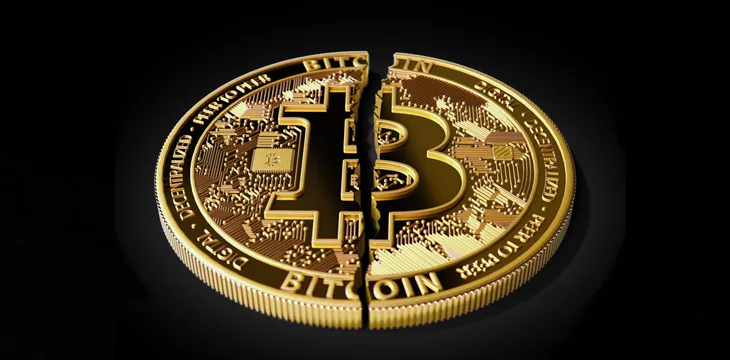|
Getting your Trinity Audio player ready...
|
This post originally appeared on ZeMing M. Gao’s website, and we republished with permission from the author. Read the full piece here.
An honest man is one who knows that he can’t consume more than he has produced.
– Ayn Rand, Atlas Shrugged.
Before you take pride in how much wealth your favorite coin has extracted from the real economy, ask what your coin has contributed to the world, or at least will contribute. If you believe it has real productive value, please justify it using an honest theory that makes economic sense.
Whenever destroyers appear among men, they start by destroying money, for money is men’s protection and the base of a moral existence. Destroyers seize gold and leave to its owners a counterfeit pile of paper. This kills all objective standards and delivers men into the arbitrary power of an arbitrary setter of values. Gold was an objective value, an equivalent of wealth produced. Paper is a mortgage on wealth that does not exist, backed by a gun aimed at those who are expected to produce it. Paper is a check drawn by legal looters upon an account which is not theirs: upon the virtue of the victims. Watch for the day when it bounces, marked, ‘Account overdrawn.’
– Ayn Rand, Atlas Shrugged.
People who promote ‘digital gold‘ (BTC) claim they are monetary libertarians. But how is digital gold different from ‘paper’ (fiat money) in Rand’s words?
People argue that it is different because BTC, the digital gold, is not inflationary. But being inflationary is not the most fundamental sin of fiat. Not having an objective standard is (fiat is inflationary because it is not objective).
It is the lack of an objective standard that predisposes a system to human corruption. This is also why atheism-based systems such as communism are always the quickest to corrupt despite the loftiest ideals they proclaim.
This is fundamentally the source of all human corruption when man deviates from the objective standard ordained by the Creator.
Gold is objective because it bases its existence on physical reality, a basic attribute of the universe (which has some marvelously stable things, gold being an example).
What makes BTC so objective? People argue that it is its energy consumption. ‘Energy is money,’ it is said. But that claim is absurd. It is one thing to argue that ‘production of energy’ is money, and it is quite another to argue that ‘consumption of energy‘ is money.
But even more important, BTC’s ‘consumption of energy’ itself has no objective foundation. It is not the consumption of energy (hashing power) that determines the price; it is precisely the other way around, that is, the price of BTC drives its energy consumption.
Therefore, the real question is, what is so objective about the price of BTC?
Nothing.
There is hardly anything in this world that is as subjective as the price of BTC.
Without any objective utility, BTC is less objective than fiat.
So again, what makes BTC different from fiat?
You say they (the government) back fiat by guns, while BTC is democratic. But the problem is that an economic model that is based on the extraction from others cannot be democratic, by definition. The extraction model works only when a minority finds the majority available to be exploited (extracted from).
For something that does not produce value but only extracts value from other parts of the economy, BTC is not only technically unscalable, but also economically unscalable, as well as socially unscalable.
BTC can only pretend to have an appearance of success when it is relatively small. The larger it becomes, the less source of economic energy it can find to extract from, and the less life it can extend itself. It is an inherent outcome of a system that is intrinsically non-generative.
It is an unavoidable conclusion of objective economics based on simple math rather than an expression of my personal disdain.
It is the law of parasites.
It is exactly the opposite quality of a system that has utility.
Therefore, BTC cannot be ‘democratic’ as a principle.
Drawing its life by allowing a small minority to extract value from the existing economy at the expense of society as a whole, BTC is less democratic and more centralized than even a fiat issued by an authoritarian government. An authoritarian government is at least obvious and usually does not (and cannot) hide the fact that it is the governing body. But BTC can, and so far has been able to, hide its highly centralized governance.
BTC may do fine temporarily when (and because) it is enjoyed by a minority. But a society cannot sustain itself for very long if the majority of its people hope to live off extracting from others through speculative gambling.
A casino is a fun place only because it is a small part of the whole society. If the whole world should become a closed casino, it would become dry and dead soon.
So, how is BTC morally superior to the corrupt fiat money that it aims to overthrow?
BTC is not the real Bitcoin invented and advanced by Satoshi. Satoshi wanted a scalable and efficient system that could fundamentally democratize human economic activities using low-cost automated micropayments. BTC is the opposite. I suggest that it is people’s myopic vision (should I even say greed) that led them to fail to detect the corruption of BTC from the real Bitcoin.
Look for the real Bitcoin for a solution. It is well. It lives a serious life hidden behind the ‘crypto’ noise. Satoshi has devoted all his post-BTC life to it. Many hundreds of millions of dollars of investment later, it backs itself up with the world’s largest blockchain patent portfolio and can already do more than one million transactions per second (1 million TPS) at a cost of around $0.00001 per transaction.
Follow CoinGeek’s Crypto Crime Cartel series, which delves into the stream of groups—from BitMEX to Binance, Bitcoin.com, Blockstream, ShapeShift, Coinbase, Ripple, Ethereum,
FTX and Tether—who have co-opted the digital asset revolution and turned the industry into a minefield for naïve (and even experienced) players in the market.

 07-12-2025
07-12-2025 





